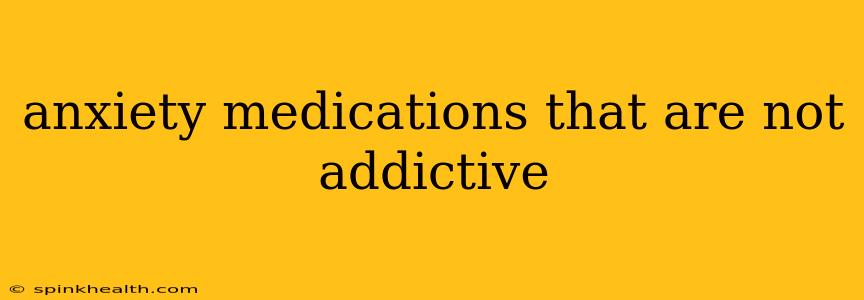Anxiety. That knot in your stomach, the racing heart, the overwhelming sense of dread. It’s a feeling millions experience, and for many, it requires medical intervention. But the fear of addiction often overshadows the search for relief. The truth is, there's no magic bullet – no anxiety medication completely devoid of any potential for dependence. However, some medications carry a significantly lower risk than others. Let's explore this complex issue, dispelling myths and clarifying the reality of anxiety medication and addiction.
My name is Dr. Evelyn Reed, and I've spent over 15 years specializing in anxiety disorders. While I cannot provide medical advice (always consult your doctor), I can offer informed insights based on years of clinical experience.
What Makes a Medication "Addictive"?
Before diving into specific medications, it’s crucial to understand what constitutes addiction. Addiction isn't simply about physical dependence – the body adapting to a substance. It's a complex interplay of physical, psychological, and behavioral factors. Some medications are more likely to trigger this complex process than others. Generally, medications that work on the brain's reward system (like opioids) carry a higher addiction risk.
Are Benzodiazepines Addictive?
Yes, benzodiazepines (like Xanax, Ativan, and Klonopin) carry a high risk of addiction and withdrawal symptoms. While they provide rapid relief, their long-term use is generally discouraged due to the potential for dependence and tolerance. They're usually prescribed for short-term relief or to manage severe anxiety attacks.
What About Buspirone?
Buspirone (Buspar) is often cited as a less addictive alternative. It works differently than benzodiazepines, targeting serotonin receptors in the brain. While less prone to physical dependence than benzodiazepines, it’s still possible to develop tolerance or experience withdrawal symptoms if stopped abruptly. It's also important to note that Buspar takes longer to become effective than other anxiety medications.
Non-Medication Approaches: Equally Important
It's crucial to remember that medication isn't the only solution for anxiety. Often, a combined approach is most effective.
What are some non-medication treatments for anxiety?
Many effective non-medication treatments exist, including:
- Therapy: Cognitive Behavioral Therapy (CBT) and other therapeutic approaches are extremely effective in managing anxiety. Therapy equips you with coping mechanisms and helps you understand the root causes of your anxiety.
- Lifestyle Changes: Regular exercise, a balanced diet, sufficient sleep, and mindfulness practices like meditation can significantly reduce anxiety symptoms.
Finding the Right Treatment Plan
The best approach to managing anxiety is highly individualized. What works for one person may not work for another. A collaborative approach with your doctor is vital. They'll consider your medical history, lifestyle, and the severity of your anxiety to develop a personalized treatment plan.
Frequently Asked Questions (FAQs)
What are some natural remedies for anxiety?
While some natural remedies like chamomile tea or aromatherapy may offer mild relief for some, they shouldn't replace professional medical advice. Always discuss any supplements or alternative treatments with your doctor before incorporating them into your routine.
Can I get addicted to antidepressants used for anxiety?
Antidepressants, such as SSRIs (selective serotonin reuptake inhibitors) and SNRIs (serotonin-norepinephrine reuptake inhibitors), are often prescribed for anxiety. While the risk of addiction is lower compared to benzodiazepines, withdrawal symptoms can occur if you stop taking them abruptly. Always follow your doctor's instructions regarding dosage and discontinuation.
How long does it take for anxiety medication to work?
The onset of effects varies significantly depending on the medication and individual response. Some medications, like benzodiazepines, provide rapid relief, while others, like Buspar and antidepressants, may take several weeks to show significant improvements.
What are the side effects of anxiety medications?
Side effects vary widely depending on the specific medication. Common side effects can include drowsiness, nausea, dizziness, headaches, and changes in appetite or sleep patterns. Your doctor can discuss potential side effects and strategies to manage them.
Remember, this information is for educational purposes only. Always consult with a healthcare professional for diagnosis and treatment of anxiety. Finding the right approach takes time and patience, but with the right support, managing anxiety and living a fulfilling life is entirely possible.

